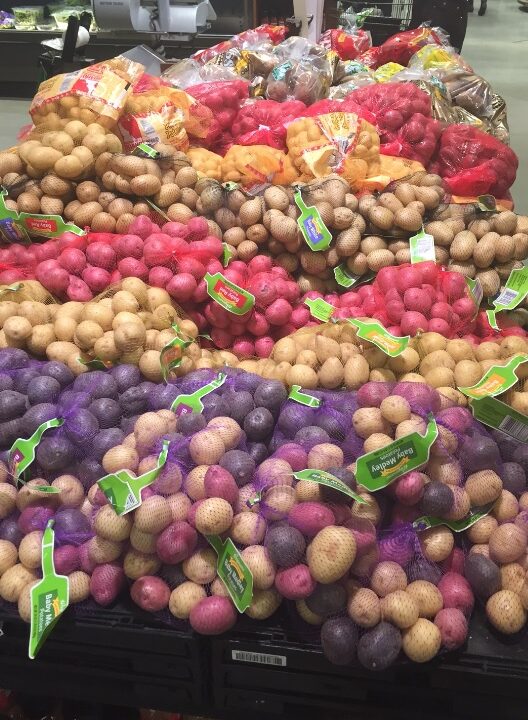This year, 2016, is such a significant year for us all in Ireland. It is the 100th anniversary of the Easter Rising, a huge milestone on Ireland’s journey towards independence.
I suspect it will be a time to reflect on our identity as a nation, and our place among the nations of the world.
But we should also use this time to look at Ireland’s contributions to the rest of the world as we march forward into our second century.
Perhaps our greatest gift to the world is the least lauded and most unexpected – the humble, and very nutritious, spud.
The potato, as we know, is more Irish than Guinness, the Dubliners and the Mountains of Mourne wrapped up together.
It is embedded in our national psyche, a part of our rich and tragic history.
Our dependence on the potato as a solitary crop was the reason behind Ireland’s mass starvation in the mid-1800s, when the dreaded potato blight got a firm grip, causing families to be wiped out or forever broken apart by mass emigration.
We learnt from our heartbreak, and although still a huge part of our agricultural landscape, never again will Ireland be so reliant on just one crop.
It grows easily in diverse conditions, and requires much less water than other staples, such as rice or wheat.
All of these factors make this amazing food source a vital food in the developing world and in particular to the rural farming families of Ethiopia and Eritrea, where its cultivation under the Vita Potato Programme is lifting them out of the poverty net by the tens of thousands.
Vita is an Irish NGO (Non-Government Organisation) working in Ethiopia and Eritrea and has collaborated with Irish Aid and Teagasc to form the Irish Potato Coalition.
There are over 6m potato farmers in East Africa who can benefit from the programme as the coalition is designed to scale out into at least six sub-Saharan countries.

Source: vita.ie
So how does this impact on the ground?
Aberesh Tomoko has been in the programme for the last four years. You would be hard pressed to find a cleaner compound than the one Aberesh shares with her five children.
As head of the household and sole provider, life for Aberesh was difficult in this very populous part of rural Ethiopia before she got involved with the Vita potato programme.
She used to grow barley, beans, false banana and the local varieties of potato on her farm, but struggled to be sustainable.
She rarely had enough food to feed her family year round, and never had a surplus to sell in the local markets.
Although the land where Aberesh lives is fertile, the farm sizes themselves are very small, averaging at about 0.2ha, and farm practices are generally archaic and unproductive.
Participation in the Vita programme enabled Aberesh to join a co-op, where she benefits from bulk buying of fertilisers and pesticides, and well as bulk selling of her potatoes.
The seeds she uses are high yielding, and she has also got a potato store to help her keep her potatoes for longer periods of time.
“The most important thing for me and my family is food security.
I need to know that my family will eat all the year round. I hadn’t grown potatos before because the local variety was low yielding and troublesome, but now most of my land is used for potatos.
“I have listened to everything the potato coalition experts have told me,” she said.
It’s an extraordinary thing to see this Irish knowledge flow into these African countries and transform the lives of many thousands of farm families.
As Ireland reflects on the last one hundred years, we need to recognise and respect the potato and the role it has played in defining us, while ensuring that Vita and the rest of the Irish Potato Coalition can deliver this incredible food source to families that need it most.
Ciara Feehely is the Head of Communications and Marketing with Vita, an Irish non-governmental organisation, working with issues of food security, agricultural development and climate change.
